|
The time has come for me to reflect on what’s behind me and what’s ahead of me. In some ways, 2017 was a disappointment. In other ways, it was a pleasant success. And overall, it was a valuable learning experience. I made 2017 all about gratitude. Save for a small handful of days, I kept a daily journal in which I listed ten (sometimes more) things, people, outcomes, etc., for which I was grateful. This practice was uplifting on good days and reinforcing on bad days. No matter what, I was never in shortage of gratitude. Personally, I dug into my first year of marriage. People say that first year is always the hardest, and I believe it. My husband and I faced unexpected financial challenges, which changed our lifestyle trajectory, and health challenges, which have a way of putting everything into perspective. And yet, we were grateful to retain many of the qualities of our lifestyle we value—freedom and flexibility to take a couple of road trips (including Devil's Tower in Wyoming and Mt. Rushmore in South Dakota to celebrate our first wedding anniversary, Arizona to attend my brother’s wedding, and Texas to celebrate Thanksgiving with my in-laws); start a freelance editing and book-building business; and—something I had been wanting for many years—adopt a sweet tuxedo cat. My husband and I continued to grow as partners, lovers, and, most importantly, friends. We still laugh together almost every day. Even when we’re not in the same time zone. We also made a decision to relocate to the East Coast this coming spring. Leaving the Billings, Montana, community that so lovingly embraced me, and the place where my husband’s roots are planted deep, is not going to be easy. But the idea of new adventures, as well as proximity to the ocean and other people and places dear to me, excites both of us. Professionally, 2017 ended with several highlights:
Yet, I struggled in other areas. I had attempted yet again—and failed, yet again—to maintain a connection to readers via this blog. In fact, I spent much of the year wanting to engage with readers and writers via social media and other options. Other goals, personal and professional, fizzled out.
These are all first-world failures, so to speak. If these are the worst of my shortcomings, then my life is, and continues to be, well-blessed. So what’s in store for 2018? I wrote a blog post for The Writer’s Habit about setting goals—I had tailored the post to target my primary audience of writers, but it was inspired by a webinar I had taken hosted by Michael Hyatt for audiences ranging from entrepreneurs to teachers to students to creative professionals to employees of all kinds at every level. As Hyatt says and I have practiced for years, it’s not recommended to share your goals with people outside your inner circle, but I will share one with you here, one that I think will be the game-changer between 2017 and 2018: Leave my comfort zone as often as possible. When I examine what I didn’t achieve this past year, whether personally or professionally, the number one reason was that I had been too afraid or reluctant to leave my comfort zone, resulting in giving up on some goals and never getting started on others. I was afraid to take risks. I read and learned a lot, but had difficulty applying what I’d learned. This year I am committed to bringing this particular brand of courage to everything I do, be it writing, teaching, building/growing, and/or moving. I’ll do it with my best friend and favorite person by my side. I’ll do it by thinking from the end and working my way back. I’ll do it with positive affirmations and tracking/measuring my results. I’ll do it one day at a time. I’d entered 2017 worried. I’m entering 2018 determined. That, too, makes all the difference. What will 2018 be for you? I encourage you to aim high, leave your comfort zone, and, above all, keep reading. Lorrine T. asks: Hi Elisa- I've always wondered what it takes for a working, successful writer to get to that place of focus where you can be productive. I’ve heard some use music, and some create a special writer’s space. What helps you get to that place?
Elisa answers: That’s a great question, Lorrine. I think every author would answer this differently. My greatest weakness has always been poor time management skills, so focus and productivity is something I occasionally struggle with, especially in the last two years when so many life changes have happened. When I was single, I had more or less a set routine that focused predominantly on my work. Now I have spousal responsibilities that include helping to care for my father-in-law, a bigger household, and pets. We also have a side business now, so I’m not solely writing books anymore. When it comes to writing, I need to avoid procrastination. That means finding the discipline to stay off social media and make writing the priority. Space is important too. My husband and I each have a room in the basement for our offices. However, lately I’ve been ending up in other places in the house, like my bedroom, or I go to the library, where I can stare out the window. I feel a little guilty about that, given that I’ve got a perfectly good office space! I think the room needs a couch so it feels more like a studio and less like a formal office (although it’s painted tangerine—not many formal offices are tangerine). I need a more comfortable desk chair too. Both are on my wish list. When writing, I need relative quiet. I don’t like to write with music or TV in the background. Writing in a coffee shop is different; for some reason, I’m able to tune out that white noise, although if the place is too loud or busy, then I’m unable to concentrate. If I’m in the drafting stage of a novel, I set a word count goal and do my best to meet it. If I’m in the revision stage, I usually work on a couple of chapters per day, depending on how problematic the writing is. If I’m in the editing stage, then I set a page count goal. If I’m struggling in any of those areas, I either go for a long walk or drive, or take a shower for as long as the hot water holds out. All three of those things will help me get unstuck or recharge my battery. I tend to work in 45- or 60-minute time blocks with frequent breaks. My husband and I are increasingly busy with additional projects and responsibilities, so we try to connect and touch base throughout the day whenever we can. Sometimes we’ll go for a walk. Sometimes we’ll have lunch. Sometimes we’ll take a nap. Sometimes we just pop in on each other and say hello. It’s very important to us that we maintain connection no matter what, for the sake of our relationship as well as our work.
In addition to the A Year With Nora Ephron series and other blog topics, I'm starting a new feature called Ask the Author in which I answer one or two questions per week submitted by readers.
Ellen D asks: What’s your go-to snack when writing? Elisa answers: In a word, chocolate. It’s always some form, like a Ghiradelli’s square or Dove bite (and there’s almost always a stash of either), or a more guilty pleasure like a Reese’s peanut butter cup, which I don’t stock in the house. When I’m itching to bake I’ll make something like chocolate chip muffins from scratch, or I’ll fix myself a grilled Nutella and banana sandwich with cinnamon. My other go-to writing snack is Pop Tarts, although the newer flavors are so over-the-top sweet and fake that they’re losing their appeal. Despite the way I go on and on about them, it will probably surprise many that I don’t regularly stock up on them. That said, I lost count of how many boxes of Pop Tarts I received as wedding presents, especially red velvet! I even took a box on my honeymoon. Got a question? Ask me!
It’s possible I just kinda sorta met my soulmate. My Nora Ephron soulmate, that is.
I don’t remember exactly when Amazon alerted me to Linda Yellin’s What Nora Knew (other than it was earlier this year), but I had downloaded a sample on my Kindle and figured I would get to it at some point during my Year With Nora Ephron. I got to it this past weekend. Especially after I saw it on sale for a buck-99. Here's the product description: Molly Hallberg is a thirty-nine-year-old divorced writer living in New York City who wants her own column, a Wikipedia entry, and to never end up in her family’s Long Island upholstery business. For the past four years Molly’s been on staff for an online magazine, covering all the wacky assignments. She’s snuck vibrators through security scanners, speed-dated undercover, danced with Rockettes, and posed nude for a Soho art studio. Yellin knew her audience—I could have sworn she’d written it for me personally. In fact, I found myself wishing I had written it. And any book that has me wishing I’d written it is what makes writing such a challenge and reading so pleasurable. (That’s not the only criteria, but it certainly makes things interesting.) It wasn’t simply the subject matter—although let’s face it: I might not have picked up the book in the first place, much less noticed it—but the writing itself. Molly had a distinct voice. The story hit all its pulse points. And it was smart. Amusing. Romantic. Yellin captured the New York and Hamptons scene I had failed to capture in Faking It. She captured the wittiness I love. And there were little Nora Ephron Easter Eggs hidden all over the place. Even if I had tried to write that book, I wouldn’t have succeeded. But it at least makes me want to try. Not to write that book, but one that Linda Yellin would like. I couldn’t find much about Yellin other than her website—she doesn’t seem to have a social media presence—but her previous two books are now on my reading list. And if anyone reading this happens to know her, tell her I’d like to meet her on the observation deck of the Empire State Building sometime. Preferably in October. I just love New York in the fall. To date, in addition to reading Heartburn as well as the scripts for Lucky Guy and When Harry Met Sally, I have read four of Nora Ephron’s collections of articles, including those from Esquire and Cosmopolitan, as well as more recent personal essays and blogposts, many of which are featured in the anthology, The Most of Nora Ephron. The more I read, the more I wish I had known her—or, at the very least, met her.
I believe in the late Donald Murray’s theory that all writing is autobiographical in that “as we read someone else’s story, we read our own.” For example, this past weekend my husband and I went to see a local production of Love, Loss, and What I Wore, the play co-written by Nora and her sister Delia Ephron (Billings folk: go see it!). So many times I was transported into my own reservoir of memories, recalling a particular outfit or article of clothing that somehow defined me or captured a moment in time, be it my first Duran Duran concert jersey or the shoes I wore for my wedding. The point is, when my husband and I left, we wound up telling each other our own stories in addition to recalling the stories of the play. As I continue to read Nora’s work (I feel weird calling her by her first name, as if we’re casual acquaintances, but referring to her by her last name seems too academic, “Ms. Ephron” seems too out of reach, and repeatedly combining her first and last name seems too tiring), I keep reflecting not only what I’ve learned about her life, but my own. I try to draw parallels where there are none. In the way she wanted to be Dorothy Parker, I find myself wanting to be her. Sort of. Nevertheless, here are five things you may not have known about Nora or me, in no particular order. 1. Before she graduated from Wellesley College, Nora Ephron was an intern for the White House during the Kennedy Administration. She gave herself the distinction of being “the only intern Kennedy didn’t make a pass at.” Even for all we know about JFK’s philandering ways, he still remains something of a folklore hero in American history. Even if she was no more than a punctuation mark in that lore, I still find it a remarkable detail of her life. I, on the other hand, was a Girl Friday (does anyone still use that term?) in the Human Resources office at UMass Dartmouth for my work study job, where no one made a pass at me, either. I learned quite a bit from that position, including that contrary to its name, most Human Resources departments are neither resourceful nor human. The paperwork one had to fill out for—well, anything—required a set of cognitive and motor skills all of its own. Also, secretaries are the eyes and ears of the university. The best part of my job was when I had to deliver paperwork to the various university departments and getting to know the secretarial staff in each. Whenever an issue came up in my student life, before I reached out to department chairpersons or deans, I talked to the secretaries first and got way farther, faster. 2. Nora was married to Washington Post reporter Carl Bernstein, first made famous for uncovering Watergate (the presidential scandal that has spawned an atrocious trend of attaching “-gate” at the end of every political or personal scandal since), and then infamous when she fictionalized his adultery and the end of their marriage in her novel Heartburn. I met Carl Bernstein in 1997 when he was a guest speaker at UMass Dartmouth. I remember two things: asking a question (I don’t remember what I asked, but it prompted a news channel to interview me), and attempting to ask a second question and him saying that someone else should have a chance. That sounds more off-putting than it actually was, and he was perfectly cordial when I was introduced to him after the event. Better yet, I wasn't that idiot who asked him who Deep Throat was (this was when the secret was still intact, for the most part)—someone else willingly stepped in. Also, I hadn’t yet read Heartburn. 3. Both Nora and I attended colleges in Massachusetts, although both the institutions and the time periods couldn’t be more different. Nora had attended Wellesley College in the early sixties, when the women’s movement hadn’t really quite happened yet. In the commencement address she delivered in 1996, she tells a story about a dean who had encouraged her to take a year off to get married and have children following graduation—the exact opposite of her intentions. She later discovered that this same dean had told a student with ambitions of being a wife and mother to take a year off and work first. "And so I saw that what Wellesley wanted was for us to avoid the extremes,” she said. What fascinated me more was the contrast to the account of her experience when she wrote about her reunion in 1972. The latter seemed much more critical, as if Wellesley had somehow missed the point of what it was they were supposed to do. Or was it the students that had missed the point? I had the luxury of attending a university in a post-women’s movement world (also, the school was co-ed). No one at UMass Dartmouth cautioned me against extremes, but neither did they steer me toward what fulfilled me intrinsically. And it wasn’t that they didn’t care. More like by then the choices for women were there for the taking. The main concern was to choose one that was most practical. “Work,” was the number one piece of advice I got. “Just get out there and get some experience. It doesn’t really matter in what.” Thing is, I’d worked for five years before I matriculated. In fact, the skills and ethic I’d developed in the workplace helped me excel as a student (to the point that I later made the unpopular argument that 90% of young adults should go into the workplace rather than college straight out of high school). I was 29 years old and ready to do something more than just “get experience” and collect a paycheck. What I really took away from my undergraduate education was this one-sentence-summation of psychology from my professor, Dr. Conboy: “People do what feels good.” It’s the intention behind every character I write now. (Also, Wellesley College has the honor of being voted one of the most beautiful campuses in the country, while UMass Dartmouth has been voted one of the ugliest. I have a soft spot for it, however.) 4. Both Nora and I married former journalists. Her second marriage didn’t last. Her third, however, did. Granted, I’m only six months into mine, but I feel pretty damn good about our chances. 5. Nora had a house in Bridgehampton, on the East End of Long Island. My mom lives in the next town over. And while my mom did run into Alan Alda once (literally, with her shopping cart at the King Kullen, by accident), and ushered Sarah Jessica Parker and Matthew Broderick to their seats at a Bay Street Theater production, she never encountered Nora Ephron. How I wish one of us had. Although I would have been terrified to invite her over for lunch. Several weeks ago, I was invited by Amazon Publishing author Anne Charnock to answer some questions about my current work in progress and a little about my writing process. She gave me a set of questions to answer (you can see her answers here). This post is already long overdue, so without further delay...
1) What are you working on? My loyal readers know I never talk about my works-in-progress! To do so would be akin to constantly opening the oven door while the cookies are baking. I will say this, however: My NaNoWriMo manuscript is simmering (slightly off from the metaphor above, although we're at least still in the cooking theme). Recently my developmental editor reported that she saw a tweet from an author who bragged about self-publishing his NaNoWriMo novel days after finishing it. We both gasped--the horror! It's not a strategy either of us recommends. Even writers who carefully outline and edit-as-they-go-along need to put their manuscript away fro a bit, or at least give it to beta-readers and editors before uploading it directly to Kindle. My manuscript is nowhere near publication-ready. And I needed to step away from it, to let it simmer for awhile so that when I return to it, I will do so with fresh eyes. So what am I doing in the meantime? Well, there's always something to work on. Or think about... 2) How does your work differ from others of its genre? I'm marketed as a chick lit author, and I'm involved with #ChickLitChat on Twitter weekly (or whenever I can). However, I try to stay away from some of the more stereotypical trappings of the genre--pink book covers, cocktails ending in "-tini," and leading men named Chad or Kyle. I prefer to brand myself, and my writing, as "commercial women's fiction" (that said, I'm sometimes surprised by the number of male readers I have, especially of my novel Faking It). No matter what I write, my goal is not to fit into a particular genre as much as it is to tell a good story with strong characters and rich dialogue. I want to make you laugh, or think, or tear up, but I also want the story and characters to stay with you well beyond THE END. 3) Why do you write what you do? I always write the novel I want to read. That's my starting and finishing point every time. I don't know of any other way to make it work. 4) How does your writing process work? Typically I'm what Nathan Bransford calls "an improvisational writer." That is to say, when I write a first draft, I pour everything onto the page, not worrying about whether it's good or bad, knowing I'll get to the shaping and molding and refining and polishing in the revision stage. I may start with a few notes, some snippets of dialogue, a description here and there, but that's all. No outline. Outlining and plotting just don't work for me--however, when I'm well into the revision stage, I may draft an outline to assist me with organization and arrangement, pacing, and making sure the timeline of the story is accurate. After a first draft is "finished," I set it aside and let it simmer (see above). When I'm ready to look at it again, I print it out, go to a coffeeshop, and start reading, pen in hand. I make all kinds of notes, start crossing things out, filling things in, and ask a lot of questions, as if the manuscript belongs to one of my students or a fellow writer. I especially "talk to the text." Once that's done, I get into the blood, sweat, and tears of writing: revision. Namely, re-writing, re-reading, repeat. I continue to develop the story, the characters, the style (word choice, etc.), and cut out every word that's not needed. At this point I'll start showing it to people (beta readers) and ask them for their feedback as well. When I'm ready to called it "finished" again, I send it to my publisher (with fingers crossed). If/when they accept it, the process of re-reading and re-writing starts in all over again with my developmental editor, copyeditors, proofreaders, etc. (The same happens if I self-publish.) 5) What is your latest novel? Please check out She Has Your Eyes, available for pre-order and scheduled for release on February 11, 2014. It's the continuing story of Faking It (currently on sale for 99 cents on Kindle) and Ordinary World. Of the three, I think She Has Your Eyes is my favorite. I hadn't planned to write a third Andi/David novel, but these things take on a life of their own. 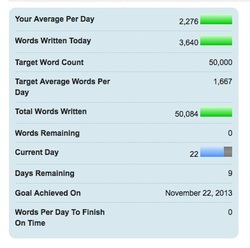 Yes, I know we're in the fourth and final week of NaNoWriMo; but as some of you know, I came down with a cold that put me out of commission for a couple of days last week. It didn't stop me, however, from "winning" NaNoWriMo one week early. I called the first draft of this new novel "finished" as well. Despite my feeling lousy, I was a woman possessed. It wasn't just about the word count. (Although, let's face it--the word count makes me uber-competitive.) I was on a mission to get the story on the page -- when that happens, it's a sign of just how in love I am with the story I'm telling. Mind you, what I've got as of right now is far from Finished with a capital F. An important part of writing a novel is putting the manuscript away for a while (I'm giving this one approximately a month) and letting that mysterious piece of where it all comes from simmer. What I will likely find when I begin the revision process (and the revision process always begins with reading) are poorly worded sentences/descriptions, uneven pacing, aspects of character that need to be significantly developed, and scenes needing to be added, deleted, and/or replaced. But that's the fun part for me. The last three weeks were all about the typing. Revision is about the writing. In the meantime, I'm catching up on other people's novels. And cheering my fellow writers on during these last few days of NaNoWriMo. You can do it! Word count goal for Day 8: 13,328
My word count to date: 13,862 Words to go: 36,138 On my iPod Shuffle: "Heart of Rock & Roll," by Huey Lewis and the News Recommended reading: How to Write a Novel, by Nathan Bransford NaNoWriMo is officially one week in, and quite a week it's been for me. I got a head start by drafting close to 5000 words for the first two days, knowing I'd be traveling to New York this weekend and staying on Long Island for the week. My plans for the beginning of the week went awry -- that's a story for a Friends of Mine epilogue, perhaps. However, the good thing about a gig like this is that you can write just about anywhere at anytime. All things considered, that I'm about 500 words ahead of the curve is pretty awesome. Despite the impressive word count and my having thought about this particular story and characters for months, I felt as if I got off to a sluggish start. I knew I'd dumped too much backstory in the first chapter, and that that entire chapter was likely going to be revamped come revision time. I tend to be an "improvisor" when I draft -- that is, I don't use outlines or plot my story beforehand. Sometimes I envision mental markers along the way, sort of like signposts, but for this one I was feeling like I was on a long and winding road, with no signs ahead. Rarely do I get stuck in the mud so early into a draft. For the first time, I thought maybe my improvising strategy wasn't so good. Maybe I should make a map. I stayed true to form, however, wrote through the mud, and I'm starting to get in a groove now. The signposts, although a little blurry, are at least in sight. I'm starting to fall in love with the story and my protagonist. I'm already putting her through the wringer, as any good storyteller must do. Whereas earlier in the week I worried I wouldn't be able to come up with anything to fill up the day's word count, much less 50K, right now I'm typing furiously and delighted to find that I've banged out almost ten pages, over 2000 words, and I'm itching to get back to it. I'm going to enjoy it while it lasts. As always, I'm enjoying the dialogue most, and watching these characters spring to life. And I've already gotten teary-eyed at the end of a scene. One thing that's different about this is that while I've been writing at my mom's house, I've been listening to my iPod Shuffle. Unless I'm writing at a coffeeshop, I normally don't listen to music, don't like to work with any distraction. But for some reason the iPod hasn't been bothering me. I have a feeling I'll go back to my normal habit of silence when I'm back in my writing studio. Or maybe I'll keep it up for this novel only. Who knows? I know I'm talking in generalities rather than specifics here. The other day, at lunch with my mom and a dear friend of hers, when she asked me what I'm working on, I replied simply, "a new novel." "What's it about?" she asked. "Um, a new novel," I replied. I just can't bring myself to talk about it. Even at my brother's recording studio yesterday, I didn't ask him to play me anything from his latest album-in-progress, instinctively knowing neither he nor it was ready yet. I hope there's still something here in this blog post of value for you. Perhaps you'll reflect upon your own writing practices--what does and doesn't work for you. Perhaps you'll be motivated to keep going. Hopefully you'll feel good about where you're at, even if you're behind your word count. You're writing a novel, dammit! Be proud of that. I spent yesterday stressed out. The cause of the stress was a book blurb-- the brief synopsis that appears on the book's back cover or inside flap or Amazon product page.
200 words, give or take. The thing kicked my ass. I'd started it the day before yesterday. Completed a draft, and it looked OK to me. Then I posted it on Facebook for both fellow authors and laypeople to see, for the purpose of inviting feedback, and I got it. Critical, even blunt, but honest and respectful. So I devoted yesterday to revising the blurb. Problem was, I didn't know how to make it better. I knew my rhetorical purpose (or, at least, I thought I did). Knew I had to make Friends of Mine enticing not as a memoir, but as a story. Knew I had to make it enticing for non-Duranies. Knew I had to sell it. But for whatever reason, I couldn't figure out how to put the words together in order to achieve that. I looked at blurbs of similar memoirs. Didn't seem to help. "A book blurb is ending my writing career," I posted on Facebook. "Piece of shit." The frustration nearly drove me to tears. My fellow authors offered me encouragement and commiserated with me. Even continued to make suggestions for improvement. I knew what I wanted to say. But the words still wouldn't come out right. Finally, I gave it to my twin brother. A former bookstore employee and stockroom manager (I gave Sunny his job in Adulation), he'd seen a lot of blurbs. He sent me back a revised version, and it was better. I tweaked it some more, and came up with something I liked. My Facebook friends agreed with their "Like"s. Some offered suggestions for even further improvement. I took it all in, and finally put it away, vowing to revisit it with fresh eyes. I have yet to do so. Needing to de-stress, I went to the beach at the end of the day. Just sat and stared at the water, listening to the rhythm of the waves. I began to think about my students, and how frustrated some of them would get. And I realized that I'd been in their shoes all day. As a teacher, it's easy to appreciate that writing doesn't come as easily for them as it does for us, and it's easy for us to say, "Sometimes it's hard for us too." But when we've got 60 papers to read and respond to in a timely manner, when we've got lessons to plan and prep, meetings to attend, and a life to manage, we become separated from our empathy. That's not to say we don't care. We just forget what it feels like for them. I've always disdained grades, and I constantly pleaded with my students to write for more than just the grade. "The goal isn't to get an A," I would say. "The goal is to write the best paper you can, and to achieve your rhetorical purpose." That sounds nice and academic. But last night I realized I was trying to write an "A"-blurb. And I was upset because I knew I was falling short, and I couldn't fix it despite having the tools to do so. How many times have I assumed my students didn't understand the assignment, didn't understand what revision was all about, or didn't care, when really they were just downright frustrated because they knew they had something to say, understood why and to whom they were saying it, and cared very much, but just couldn't put the words together? For how many did "getting an A" mean "getting it right," getting it the best it can be? And how many felt that getting it to less than an A-level meant not only that the writing wasn't good enough, but that they weren't good enough? I haven't been in a classroom (other than in a guest capacity) for over a year. But today I wish I was. I'd be in a better position to help them, simply because for the last two days, I was one of them. I am thrilled to make two announcements connected to my upcoming memoir Friends of Mine: Thirty Years in the Life of a Duran Duran Fan. The first is that friend and fellow Amazon Publishing author RJ Keller will write the Foreward. Not only is she a great writer (check out her novel Waiting For Spring), but also a Gen-Xer and former teenage fedora-clad Duranie (I've seen pictures). I knew early on that she'd offer something of value to the project. She was one of the first to see the manuscript in draft form, and understood where I was coming from not only from experience, but also rhetorically. The second is even more exciting. One of the advantages of self-publishing is having sole control of the editorial and design process (although, in fairness, I must acknowledge that Amazon Publishing gives me a lot of input when it comes to my novels, and I'm so grateful). When it came to the cover design of this book, only one name came to mind: Patty Palazzo. I first heard her name years ago in conjunction with Duran Duran; she designed the calendars and other merchandise. And then I saw this: Um, yeah. I know.
While promoting his memoir, John Taylor tweeted a link to a story about Patty and her cover design process. As a lover of all things process, naturally I clicked on the link and commented on it, which, to my pleasant surprise, resulted in a brief but fruitful Twitter conversation with Patty, and mutual follows. (I may have also tweeted something like, "I want to wallpaper my writing studio with that cover. Just sayin'.") Thus, when it came to my memoir cover, the designer had to be Patty. Not only because I knew she'd rock the design (you can see more of her work here), but also because bringing her on board would make the project even more personal. And it's already quite personal to me. In fact, everyone I've worked with throughout this project has been someone close, someone trusted, someone I knew would take special care. Bringing Patty Palazzo into a Duran Duran-related project is like coming full circle, in a way. I knew she too would take special care. But would she want to work with little ol' me? Would she be available? Fortunately for me, YES. And judging by our interaction so far, I know she's going to be a pleasure to work with. I am more psyched than ever to release this book. I hope you'll be just as psyched to read it. |
Archives
June 2024
Categories
All
|
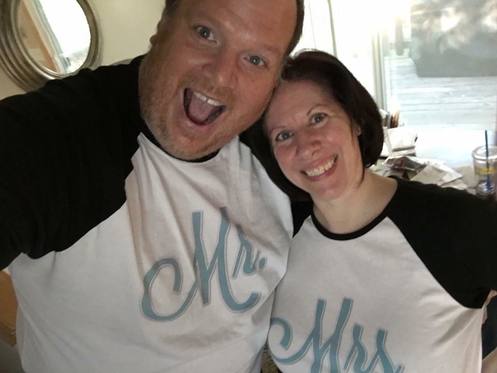
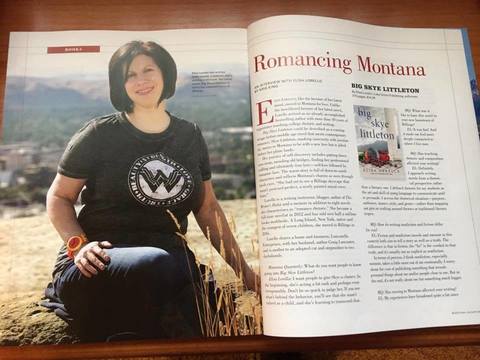

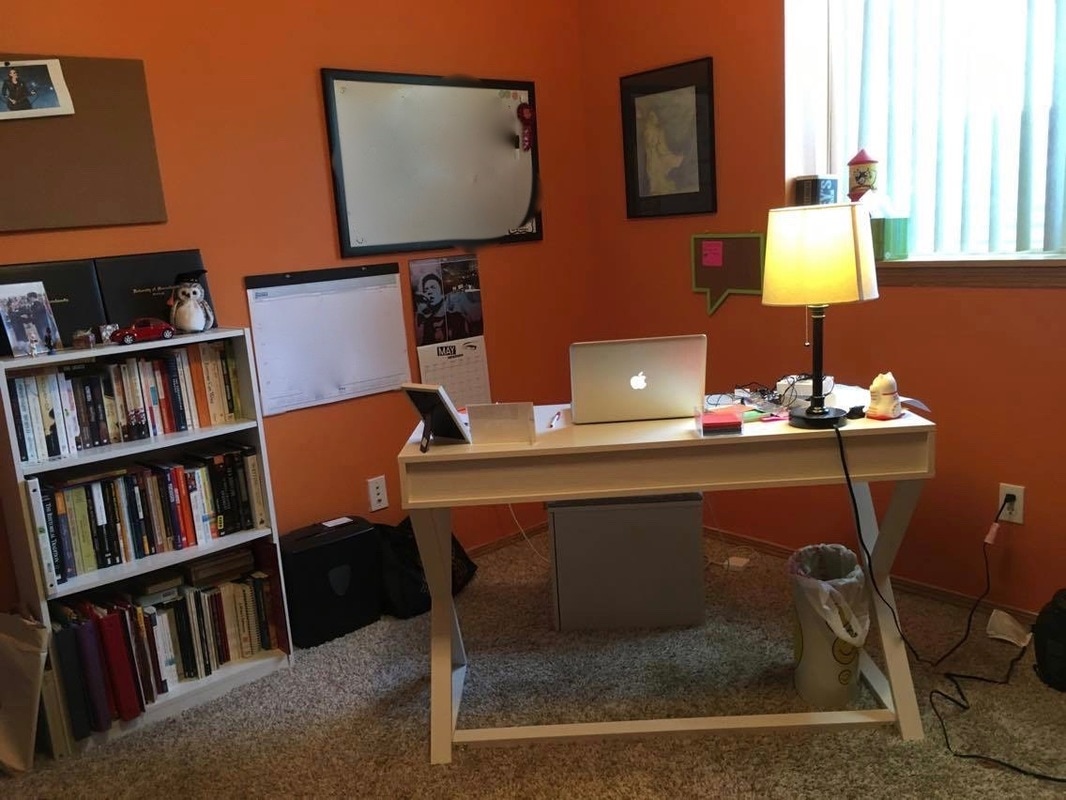
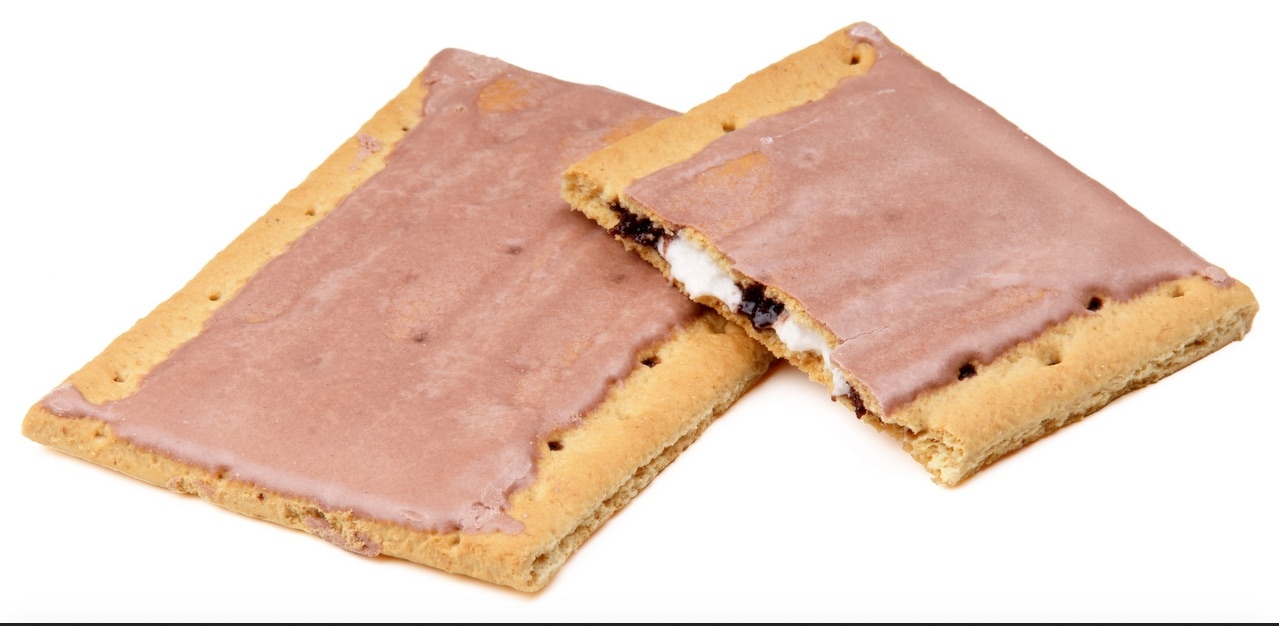
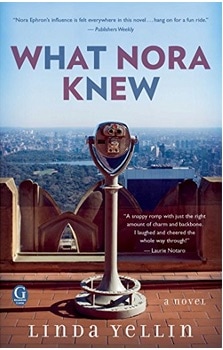
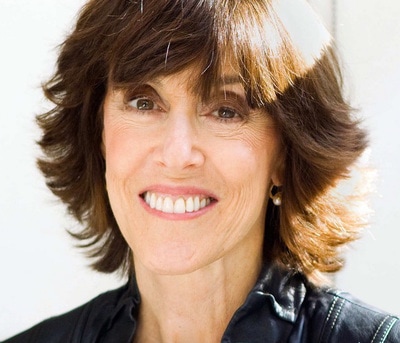
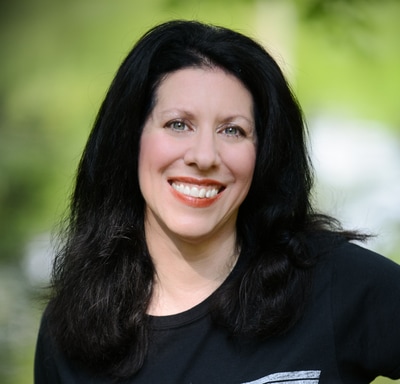
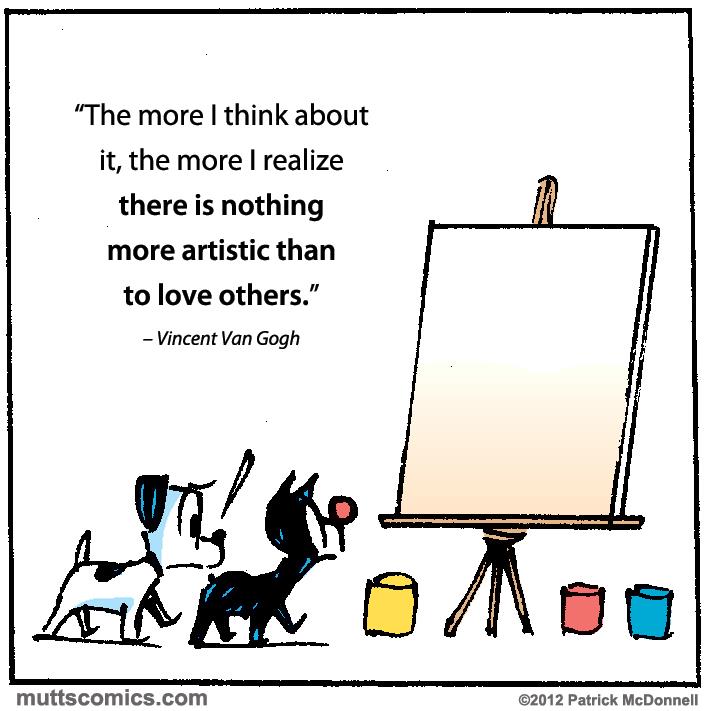
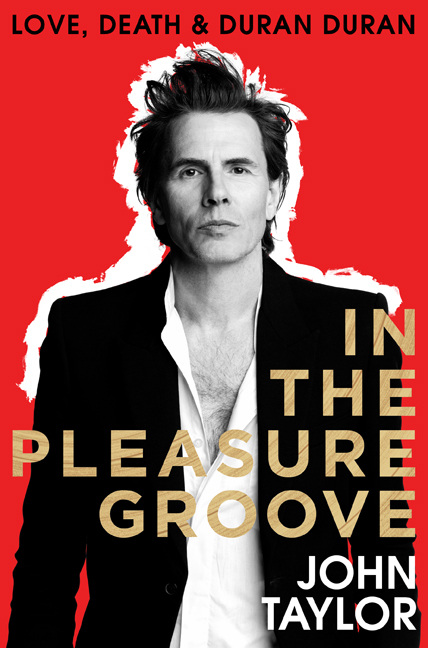
 RSS Feed
RSS Feed